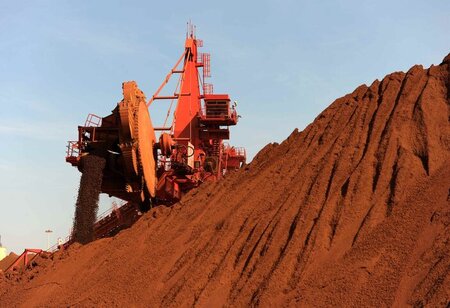
Smaller Indian steel producers are pushing for a restriction on iron ore exports since local prices have increased due to a spike in sales to Chinese mills. India's raw material exports surged by 170% to 44 million tons last year, with the majority of them destined for China, despite growing domestic demand. In order to preserve their profit margins, the industry's most severely impacted segments have turned to the government for regulations.
Anil Nachrani, the head of the Chhattisgarh Sponge Iron Manufacturers Association, stated over the phone last week, "We have asked the government to ban exports of all forms of iron ore — otherwise China's steel industry will run and ours will shut." He declared, "India ought to export steel, not iron ore."
Smaller mills in at least five significant industrial states, according to Nachrani, have united to press the steel ministry after a number of them turned a profit. According to him, second-tier producers—who make up over 40% of the production in the country—have been paying nearly four times as much as larger businesses. The best mills in India frequently own their own mines and are able to negotiate cheaper pricing for inputs like coal and iron ore.
One of the primary commodities with the worst performance so far this year is iron ore, and any effort by India to curtail shipments might undermine those prices. In the past, the government has taken action to protect the interests of regional producers. To save expenses and increase supply, it levied a 50% export tax on all grades of iron ore in May 2022. Six months later, the bill was dropped.
An email request for comment was not immediately answered by India's steel ministry.
Large steelmakers in India have increased their capacity, which has increased local demand and sharpened competition for the commodity at auction and on the free market. However, end-user demand for steel is still low, which is reducing smaller firms' profit margins.
"On the one hand, demand has been weak, and on the other hand, they are not able to compete with major producers who have captive coal and iron ore mines," national organization Sponge Iron Manufacturers Association director general Deependra Kashiva said.

